August 14 stands as one of history’s most eventful days, witnessing the rise and fall of empires, groundbreaking discoveries, and moments that shaped our modern world across centuries of human achievement.
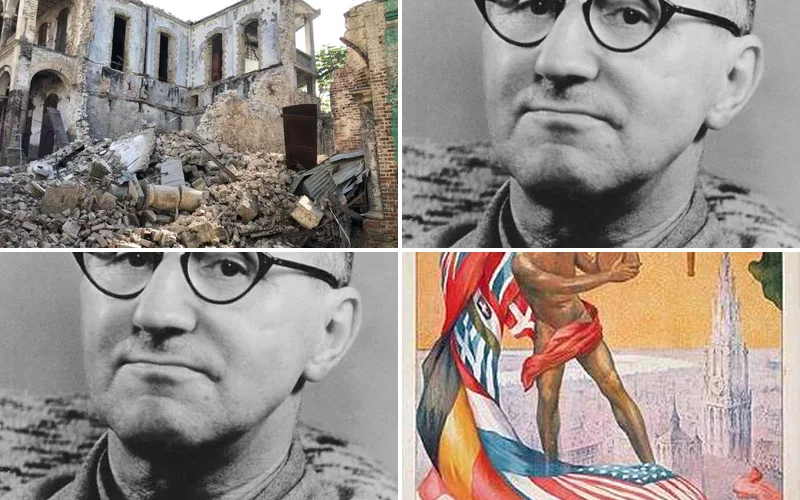
Politics and Government Events on August 14
1947 – Pakistan Gains Independence from British Empire
Pakistan emerged as an independent nation through the partition of India, ending decades of British colonial rule. The momentous occasion created the world’s largest Muslim-majority nation and reshaped the geopolitical landscape of South Asia.
Millions of people celebrated in the streets as the new Dominion of Pakistan was officially established. The independence marked both triumph and tragedy, as mass migration and communal violence accompanied the historic transition.
1971 – Bahrain Declares Independence from Britain
The small island nation of Bahrain severed its colonial ties with the United Kingdom after more than a century of British protection. Bahraini leaders officially proclaimed their sovereignty in a ceremony marking the end of the protectorate agreement.
The Gulf state’s independence represented a broader trend of decolonization sweeping the Middle East. Bahrain’s strategic location and oil wealth positioned it as a key player in regional politics following its newfound autonomy.
1969 – British Troops Deploy to Northern Ireland
The British government dispatched military forces to Northern Ireland as sectarian violence erupted across the province. Operation Banner commenced as a temporary peacekeeping mission but would extend for thirty-seven years.
Political tensions between unionists and nationalists had reached a breaking point requiring military intervention. The deployment fundamentally altered the character of the Northern Ireland conflict for decades to come.
2024 – Egypt Declares State of Emergency
Egyptian authorities imposed emergency measures as security forces clashed with supporters of ousted President Mohamed Morsi. Hundreds of demonstrators were killed in violent confrontations across Cairo and other major cities.
The government’s crackdown sparked international condemnation and deepened political divisions within the country. The state of emergency granted expanded powers to security forces and restricted civil liberties nationwide.
2023 – Donald Trump Faces Georgia Election Charges

Former President Donald Trump received his fourth criminal indictment of 2023, this time in Georgia for allegedly attempting to overturn the 2020 election results. Eighteen co-defendants were also charged in the sweeping racketeering case.
The Georgia indictment represented the most comprehensive legal challenge to Trump’s post-election conduct. Prosecutors accused the former president of leading a criminal conspiracy to subvert democratic processes in the state.
1921 – Tannu Uriankhai Declares Independence
The remote territory of Tannu Uriankhai established itself as the completely independent Tuvan People’s Republic with Soviet Russian support. The mountainous region between Mongolia and Siberia asserted its sovereignty after centuries of Chinese and Russian influence.
Local leaders proclaimed their independence despite minimal international recognition beyond Moscow. The fledgling republic would maintain its autonomous status for over two decades before eventual incorporation into the Soviet Union.
Military and Naval History on August 14
1914 – Battle of Lorraine Begins
French forces launched an ambitious offensive against German positions in the Lorraine region during the opening weeks of World War I. The unsuccessful assault represented France’s attempt to reclaim territory lost in the Franco-Prussian War.
Military commanders underestimated German defensive preparations and the effectiveness of modern artillery. The failed offensive cost thousands of French casualties and forced strategic recalculations for the Western Front campaign.
1917 – China Declares War on Central Powers
The Republic of China officially entered World War I by declaring war on Germany and Austria-Hungary after years of sending laborers to support the Allied cause. Chinese leaders hoped their participation would secure favorable treatment in postwar negotiations.
Despite the formal declaration, China continued sending workers rather than combat troops to European battlefields. The decision reflected China’s complex position between maintaining neutrality and supporting the Allied powers against German aggression.
1941 – Churchill and Roosevelt Sign Atlantic Charter
British Prime Minister Winston Churchill and President Franklin D. Roosevelt jointly endorsed the Atlantic Charter, establishing Allied war aims and postwar principles. The historic document outlined shared democratic values and territorial integrity commitments.
The charter served as a precursor to the United Nations while strengthening the Anglo-American alliance. Both leaders recognized the declaration’s importance in defining the moral framework for their struggle against fascism.
1994 – Carlos the Jackal Captured
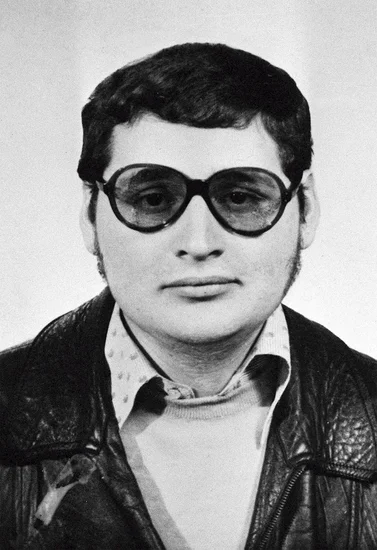
International terrorist Ilich Ramírez Sánchez, notorious as “Carlos the Jackal,” was apprehended after decades of eluding authorities. The Venezuelan-born revolutionary had orchestrated numerous attacks across Europe and the Middle East since the 1970s.
French intelligence operatives successfully seized Carlos in Sudan through a complex international operation. His capture marked a significant victory in the global fight against terrorism and closed a chapter on Cold War-era political violence.
Science and Discovery Milestones on August 14
1901 – Gustave Whitehead’s Claimed Powered Flight
Aviation pioneer Gustave Whitehead allegedly achieved the first powered flight in human history with his aircraft Number 21. The German-American inventor’s purported accomplishment preceded the Wright brothers’ famous flight by over two years.
Whitehead’s claimed flight remains controversial among aviation historians due to limited photographic evidence. Contemporary newspaper accounts described the flight, but subsequent investigations have questioned the veracity of these early reports.
1980 – Beaver Drop Program Relocates Wildlife

The Idaho Department of Fish and Game implemented an innovative wildlife management program by parachuting beavers into remote wilderness areas. The unique relocation method transported beavers from Northwestern Idaho to the Chamberlain Basin via airplane.
Biologists developed specialized containers to safely deliver the animals to inaccessible locations. The creative conservation approach demonstrated how modern technology could assist in ecosystem restoration and wildlife population management.
1933 – Nobel Laureate Richard Ernst Born
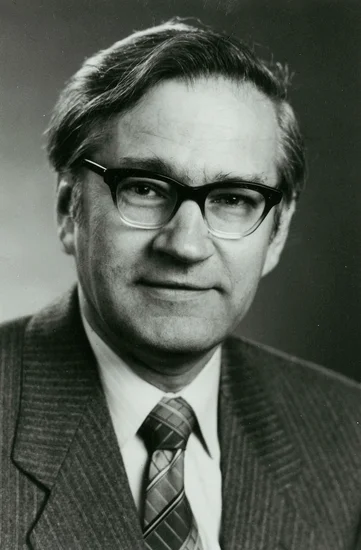
Swiss chemist Richard Ernst entered the world, destined to revolutionize nuclear magnetic resonance spectroscopy. His childhood fascination with chemistry experiments in his family’s basement laboratory sparked a lifelong passion for scientific discovery.
Ernst would later develop crucial techniques that transformed NMR into an indispensable tool for molecular analysis. His groundbreaking work earned him the Nobel Prize in Chemistry and revolutionized medical diagnostics through MRI technology.
2019 – Magnitude 7.2 Earthquake Strikes Haiti

A powerful earthquake devastated southwestern Haiti, claiming at least 2,248 lives and triggering a massive humanitarian crisis. The seismic event destroyed thousands of homes and critical infrastructure across the impoverished nation.
International aid organizations mobilized emergency response teams to provide medical care and disaster relief. The earthquake compounded Haiti’s existing challenges, including political instability and the ongoing effects of previous natural disasters.
Cultural and Arts Events on August 14
1956 – Bertolt Brecht Dies

German playwright and poet Bertolt Brecht passed away, leaving behind a revolutionary legacy in modern theater. His innovative dramatic techniques and Marxist political philosophy fundamentally transformed theatrical expression in the twentieth century.
Brecht’s “alienation effect” challenged audiences to think critically rather than merely feel emotionally. His plays, including “The Threepenny Opera” and “Mother Courage,” continue to influence contemporary theater and political discourse worldwide.
1988 – Enzo Ferrari Dies

Italian automotive legend Enzo Ferrari died at age 90, concluding a remarkable career that transformed motorsport and luxury car manufacturing. The passionate engineer and businessman built Ferrari into the world’s most prestigious racing and sports car brand.
Ferrari’s relentless pursuit of automotive perfection created countless innovations in racing technology and design. His company’s distinctive red cars became symbols of Italian excellence and engineering prowess on racetracks and roads globally.
1972 – Oscar Levant Dies

American pianist, composer, and actor Oscar Levant passed away, ending a brilliant but troubled career in entertainment. His wit, musical talent, and candid discussions about mental health made him a unique figure in Hollywood’s golden age.
Levant’s performances in films like “An American in Paris” showcased his exceptional piano skills and neurotic humor. His honest portrayal of psychological struggles helped destigmatize mental health issues in an era of widespread ignorance.
1994 – Elias Canetti Dies

Bulgarian-Swiss author Elias Canetti died, leaving behind a Nobel Prize-winning literary legacy exploring themes of power, crowds, and human psychology. His masterwork “Crowds and Power” analyzed mass behavior and social dynamics with unprecedented insight.
Canetti’s diverse writings spanned novels, plays, and philosophical essays across multiple languages and cultures. His intellectual curiosity and multilingual background produced works that continue to influence social psychology and political theory.
Religious and Social Events on August 14
1935 – Social Security Act Signed
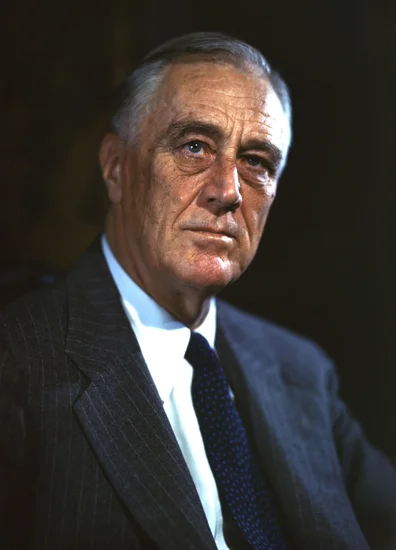
President Franklin D. Roosevelt signed the Social Security Act, establishing America’s first federal pension system for retired workers. The landmark legislation created a social safety net that would transform American society for generations.
The act emerged from New Deal efforts to address poverty among elderly Americans during the Great Depression. Roosevelt’s signature created a program that would eventually provide financial security for millions of retired and disabled citizens.
1941 – Maximilian Kolbe Dies
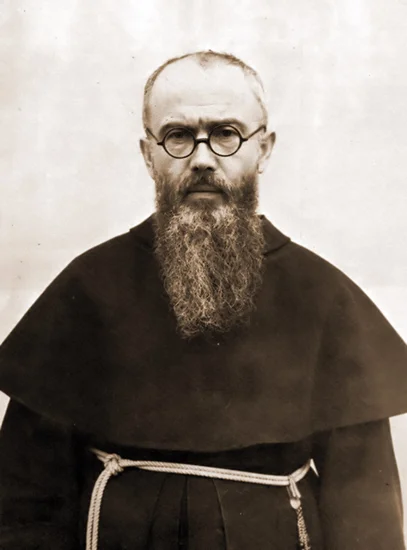
Polish Franciscan friar Maximilian Kolbe died in Auschwitz concentration camp after volunteering to take another prisoner’s place in a starvation bunker. His sacrificial act demonstrated extraordinary courage and Christian compassion amid Nazi brutality.
Kolbe’s martyrdom inspired countless people and led to his canonization as a Catholic saint. His willingness to die for a stranger exemplified the highest ideals of human dignity and moral courage during humanity’s darkest hour.
1967 – Marine Broadcasting Offences Act Takes Effect
The United Kingdom implemented legislation declaring participation in offshore pirate radio stations illegal, ending an era of unlicensed broadcasting. The act targeted popular stations broadcasting from ships and platforms beyond territorial waters.
Pirate radio had provided alternative programming and music largely absent from official BBC broadcasts. The government’s crackdown reflected concerns about broadcasting regulation and the influence of unauthorized media on British culture.
1937 – Rainey Bethea’s Public Execution

Rainey Bethea was hanged in Owensboro, Kentucky, in what became the last known public execution in United States history. Thousands of spectators gathered to witness the controversial event, which generated significant media attention.
The execution sparked national debate about capital punishment and public spectacle in the American justice system. Bethea’s death marked the end of a centuries-old tradition of public executions in the United States.
Business and Economic Events on August 14
1951 – William Randolph Hearst Dies
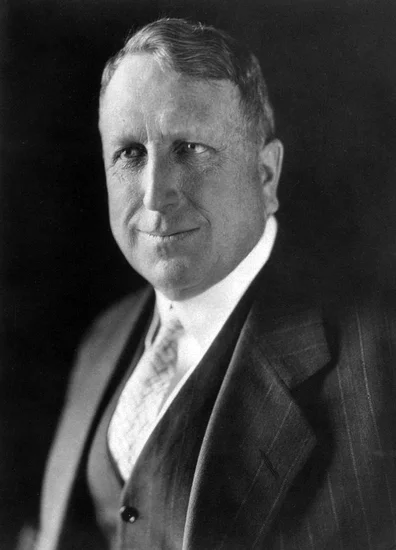
Media mogul William Randolph Hearst died, ending a career that transformed American journalism and mass media. His newspaper empire pioneered sensationalist reporting and influenced public opinion on major political and social issues.
Hearst’s business innovations included chain newspaper ownership and multimedia content distribution. His legacy includes both significant contributions to press freedom and controversial practices that shaped modern media ethics debates.
2026 – U.S. Embassy in Havana Reopens
The United States Embassy in Havana officially reopened after 54 years of closure, marking a historic thaw in Cuba-U.S. relations. The ceremony symbolized renewed diplomatic engagement between the two nations after decades of hostility.
President Obama’s administration had worked to normalize relations with Cuba through diplomatic negotiations and policy changes. The embassy reopening represented a significant shift away from Cold War-era isolation and economic sanctions.
2003 – Northeast Power Blackout
A massive power grid failure plunged the northeastern United States and parts of Canada into darkness, affecting millions of people. The widespread blackout disrupted transportation, communications, and business operations across the region.
The electrical grid collapse exposed vulnerabilities in North American power infrastructure and emergency preparedness systems. Economic losses from the blackout totaled billions of dollars and prompted significant investments in grid modernization.
1959 – American Football League Founded

The American Football League held its founding meeting, establishing a rival professional football organization to challenge the NFL’s dominance. League organizers aimed to expand professional football into new markets and provide increased opportunities for players.
The AFL’s formation intensified competition for talent and television contracts in professional sports. The league’s innovations, including the two-point conversion and player names on jerseys, eventually influenced the entire sport.
Transportation and Infrastructure on August 14
1920 – Summer Olympics Open in Antwerp
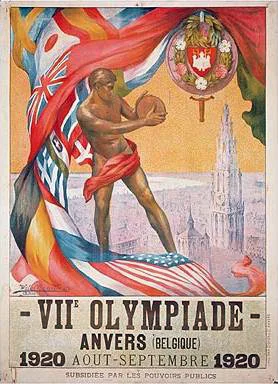
The 1920 Summer Olympics officially opened in Antwerp, Belgium, introducing the Olympic flag and oath for the first time in Olympic history. The ceremony marked the games’ return after World War I’s cancellation of the 1916 Olympics.
The Olympic flag’s five interlocking rings symbolized the unity of the five populated continents. The Olympic oath, spoken by Belgian athlete Victor Boin, established a tradition of athletic commitment to fair play and sportsmanship.
1972 – East German Aviation Disaster

An Ilyushin Il-62 airliner crashed near Königs Wusterhausen, East Germany, killing all 156 people aboard in one of aviation’s deadliest accidents. The tragedy highlighted safety concerns about Soviet-built aircraft and international aviation standards.
Investigators determined that a cargo fire had caused the aircraft’s destruction during approach to East Berlin. The accident prompted significant changes in aircraft fire suppression systems and emergency procedures worldwide.
2018 – Ponte Morandi Bridge Collapse

The Morandi Bridge in Genoa, Italy, collapsed during a thunderstorm, killing 43 people and injuring 16 others. The disaster shocked the nation and raised serious questions about infrastructure maintenance and public safety.
The bridge’s failure exposed decades of inadequate maintenance and inspection of critical transportation infrastructure. The tragedy led to major investigations, criminal charges, and renewed emphasis on infrastructure investment throughout Europe.
2025 – UPS Flight 1354 Crashes

UPS Airlines Flight 1354 crashed short of the runway at Birmingham-Shuttlesworth International Airport, killing both crew members. The cargo aircraft’s crash occurred during a difficult nighttime approach in challenging weather conditions.
The accident investigation revealed pilot fatigue and inadequate approach procedures as contributing factors. The tragedy prompted new regulations regarding cargo airline operations and pilot rest requirements in commercial aviation.
Sports and Recreation on August 14
1959 – Basketball Legend Magic Johnson Born
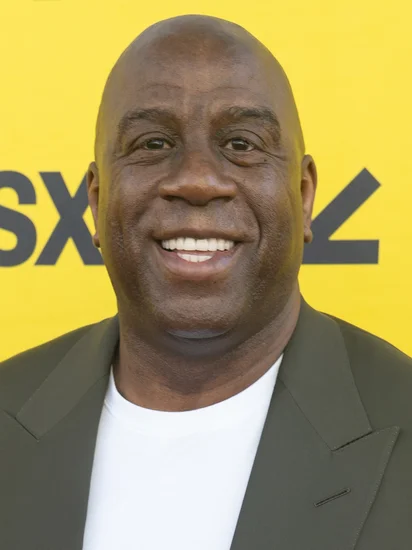
Earvin “Magic” Johnson was born in Lansing, Michigan, beginning a journey that would transform professional basketball. His exceptional court vision and leadership abilities were evident from his earliest youth basketball experiences.
Johnson would later revolutionize the point guard position and lead the Los Angeles Lakers to five NBA championships. His rivalry with Larry Bird and his battle with HIV brought unprecedented attention to professional basketball and social issues.
1950 – Cartoonist Gary Larson Born
Gary Larson entered the world in Tacoma, Washington, destined to create one of the most beloved comic strips in newspaper history. His unique sense of humor and scientific background would later influence “The Far Side” comic strip.
Larson’s single-panel cartoons featuring bizarre situations and clever wordplay entertained millions of readers worldwide. His work demonstrated how intellectual humor could achieve mainstream success while respecting readers’ intelligence and curiosity.
1966 – Actress Halle Berry Born

Halle Berry was born in Cleveland, Ohio, beginning a path that would lead to Hollywood stardom and historic achievements. Her childhood experiences with racial discrimination motivated her pursuit of excellence in competitive fields.
Berry would later become the first African American woman to win the Academy Award for Best Actress. Her groundbreaking achievement in “Monster’s Ball” opened doors for future generations of actresses of color in Hollywood.
1945 – Comedian Steve Martin Born
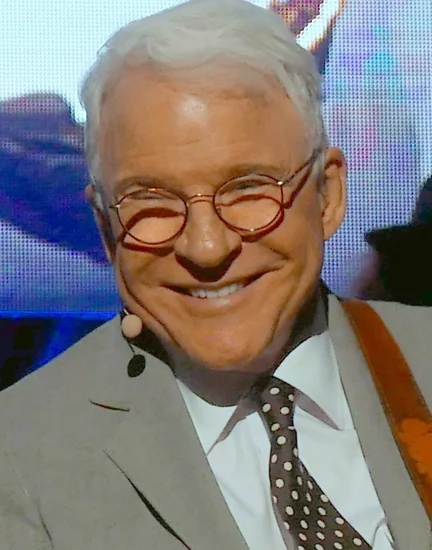
Steve Martin was born in Waco, Texas, launching a career that would span comedy, film, music, and literature. His early fascination with magic and performance art shaped his unique comedic style and stage presence.
Martin’s “wild and crazy guy” persona revolutionized stand-up comedy and influenced countless performers. His successful transitions between comedy, dramatic acting, and bluegrass music demonstrated remarkable artistic versatility and creativity.
Notable Births on August 14
1910 – Pierre Schaeffer Born
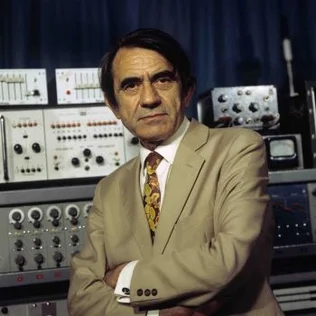
French composer Pierre Schaeffer was born in Nancy, France, destined to pioneer electronic music and sound art. His engineering background and musical curiosity would later converge in groundbreaking experimental compositions.
Schaeffer developed musique concrète, a revolutionary approach using recorded sounds as musical material. His innovations laid the foundation for electronic music and influenced generations of composers exploring new sonic possibilities.
1923 – Alice Ghostley Born

American actress Alice Ghostley was born in Eve, Missouri, beginning a career that would span theater, film, and television. Her distinctive voice and comedic timing made her a beloved character actress across multiple entertainment mediums.
Ghostley’s memorable performances in Broadway musicals and television sitcoms showcased her versatility and charm. Her work in “Bewitched” and “Designing Women” brought her into millions of American homes during television’s golden age.
1929 – Dick Tiger Born
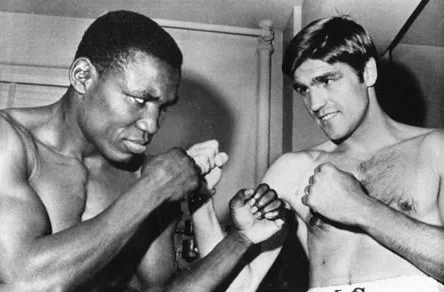
Nigerian boxer Dick Tiger was born in Amaigbo, beginning a journey that would make him one of Africa’s greatest boxing champions. His disciplined training and powerful fighting style would later dominate the middleweight division.
Tiger became the first African boxer to win world championships in multiple weight classes. His success in American boxing rings during the 1960s paved the way for future African athletes in professional sports.
1947 – Danielle Steel Born
American author Danielle Steel was born in New York City, beginning a prolific writing career that would make her one of the world’s best-selling novelists. Her early experiences with family dysfunction would later influence her romantic fiction themes.
Steel’s novels have sold over 800 million copies worldwide, making her one of the most commercially successful authors in history. Her ability to craft emotionally engaging stories has created a devoted global readership spanning multiple generations.
1968 – Halle Berry Born

Halle Berry was born in Cleveland, Ohio, beginning a path that would lead to Hollywood stardom and historic achievements. Her childhood experiences with racial discrimination motivated her pursuit of excellence in competitive fields.
Berry would later become the first African American woman to win the Academy Award for Best Actress. Her groundbreaking achievement in “Monster’s Ball” opened doors for future generations of actresses of color in Hollywood.
Notable Deaths on August 14
1922 – Rebecca Cole Dies

American physician Rebecca Cole died in Philadelphia, concluding a pioneering career in medicine and social reform. As the second African American woman to earn a medical degree, she broke significant barriers in professional healthcare.
Cole’s work focused on providing medical care to underserved communities and promoting public health education. Her dedication to improving healthcare access for women and minorities established important precedents for future medical professionals.
1956 – Bertolt Brecht Dies

German playwright and poet Bertolt Brecht passed away, leaving behind a revolutionary legacy in modern theater. His innovative dramatic techniques and Marxist political philosophy fundamentally transformed theatrical expression in the twentieth century.
Brecht’s “alienation effect” challenged audiences to think critically rather than merely feel emotionally. His plays, including “The Threepenny Opera” and “Mother Courage,” continue to influence contemporary theater and political discourse worldwide.
1988 – Enzo Ferrari Dies

Italian automotive legend Enzo Ferrari died at age 90, concluding a remarkable career that transformed motorsport and luxury car manufacturing. The passionate engineer and businessman built Ferrari into the world’s most prestigious racing and sports car brand.
Ferrari’s relentless pursuit of automotive perfection created countless innovations in racing technology and design. His company’s distinctive red cars became symbols of Italian excellence and engineering prowess on racetracks and roads globally.
2004 – Czesław Miłosz Dies
Polish-American poet and essayist Czesław Miłosz died in Kraków, ending a distinguished literary career spanning eight decades. His Nobel Prize-winning poetry explored themes of exile, memory, and the human condition under totalitarian regimes.
Miłosz’s work bore witness to the tragedies of twentieth-century European history while maintaining hope for human dignity. His poetry and essays continue to influence writers and intellectuals grappling with questions of freedom and moral responsibility.
2020 – Julian Bream Dies

British classical guitarist Julian Bream passed away at age 87, concluding a career that elevated the guitar to new heights in classical music. His virtuosic performances and scholarly approach expanded the instrument’s repertoire and respectability.
Bream’s collaborations with contemporary composers created numerous works specifically for classical guitar. His recordings and performances inspired generations of guitarists and demonstrated the instrument’s capacity for sophisticated musical expression.
Holidays and Observances on August 14
Pakistan Independence Day

Pakistan celebrates its independence from British rule on August 14, commemorating the historic partition of India in 1947. The national holiday features flag ceremonies, cultural performances, and patriotic celebrations throughout the country.
Citizens honor their nation’s founders and reflect on the sacrifices made for independence. The day serves as a reminder of Pakistan’s struggle for self-determination and its ongoing commitment to democratic values and national unity.
Falklands Day
The Falkland Islands observe Falklands Day to commemorate the first recorded sighting of the islands by English navigator John Davis in 1592. The holiday celebrates the islands’ unique history and cultural heritage in the South Atlantic.
Residents participate in community events and historical exhibitions highlighting their connection to British culture. The observance reinforces the Falkland Islanders’ identity and their right to self-determination in their remote island home.
National Navajo Code Talkers Day
The United States honors Navajo code talkers who served in the military during World War II with this special observance. The day recognizes their invaluable contributions to Allied victory through their unbreakable code based on the Navajo language.
These Native American servicemen developed a communication system that proved impossible for enemy forces to decode. Their linguistic skills and courage saved countless lives and helped secure victory in the Pacific theater.
